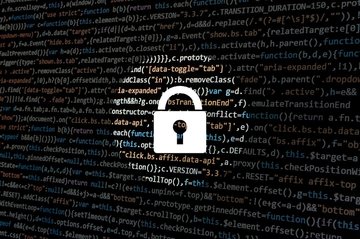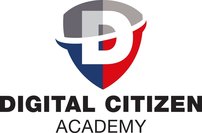Personal Safety
|
|
BE SAFE in CYBERSPACE
April 2017
Staff
There are a lot of statistics out there, but they all point to the same thing. We’re spending more and more time each year online – online shopping, social networking, email, podcasts, webinars, FaceTime…the list goes on. Many parents complain about their kids spending too much time looking at screens, but many of us are guilty of the same obsession.
Most people don’t think much about it, but you are literally “putting yourself out there” when you surf, post and share. Would you let just anyone into your home? Would you put an “I’m on Vacation” sign on your mailbox? Probably not.
There’s something about cyberspace that gives many people a false sense of security. After all, you’re in the privacy of your home, so you’re safe…right?
Is my stuff really private?
Lisa Strohman, Ph.D., a clinical psychologist who is founder and CEO of the Digital Citizen Academy and founder and director of the Technology Wellness Center, warns, “Many people don’t realize that their photos can be hacked and used salaciously even when their accounts have “Friends Only” settings. This often happens from breaches outside the U.S.” Strohman states that there is no jurisdiction over these types of attacks. She also warns about unintended consequences with re-posts and shares. “You might share something you think is going to your friends, but some of those friends might have a “public” setting on their own timeline or forward to others.” The post that you thought was just going to friends has now become public. This is where both forethought and knowledge of privacy settings is extremely important.
Parents as Role Models
Strohman also reminds parents to model the behaviors they expect from their kids, particularly when it comes to social networking habits. “Be an example for your kids. Are you posting pictures of yourself on Facebook? How are you dressed? What is the message?” Parents should also be cognizant of what they are saying to others on their social networking pages. Avoid engaging in gossip, online fights and other bad behaviors. Your children are watching what you do.
Stranger Danger
Predators don’t just go after kids. Adults need to be careful about conversing with strangers online, too. Strohman says you need to think about what you’re submitting before you click the “post” or “send message” buttons. “People don’t always pay attention to who they’re talking to online. You don’t know the psychology behind strangers you’re engaging with on social networking sites. Pay attention to what you’re saying. There may be repercussions that you don’t know about.”
Cyber Safety Protocol (The Dos and Don’ts):
General:
Email:
Online shopping:
Consumer Affairs
Social Networking:
There are a lot of statistics out there, but they all point to the same thing. We’re spending more and more time each year online – online shopping, social networking, email, podcasts, webinars, FaceTime…the list goes on. Many parents complain about their kids spending too much time looking at screens, but many of us are guilty of the same obsession.
Most people don’t think much about it, but you are literally “putting yourself out there” when you surf, post and share. Would you let just anyone into your home? Would you put an “I’m on Vacation” sign on your mailbox? Probably not.
There’s something about cyberspace that gives many people a false sense of security. After all, you’re in the privacy of your home, so you’re safe…right?
Is my stuff really private?
Lisa Strohman, Ph.D., a clinical psychologist who is founder and CEO of the Digital Citizen Academy and founder and director of the Technology Wellness Center, warns, “Many people don’t realize that their photos can be hacked and used salaciously even when their accounts have “Friends Only” settings. This often happens from breaches outside the U.S.” Strohman states that there is no jurisdiction over these types of attacks. She also warns about unintended consequences with re-posts and shares. “You might share something you think is going to your friends, but some of those friends might have a “public” setting on their own timeline or forward to others.” The post that you thought was just going to friends has now become public. This is where both forethought and knowledge of privacy settings is extremely important.
Parents as Role Models
Strohman also reminds parents to model the behaviors they expect from their kids, particularly when it comes to social networking habits. “Be an example for your kids. Are you posting pictures of yourself on Facebook? How are you dressed? What is the message?” Parents should also be cognizant of what they are saying to others on their social networking pages. Avoid engaging in gossip, online fights and other bad behaviors. Your children are watching what you do.
Stranger Danger
Predators don’t just go after kids. Adults need to be careful about conversing with strangers online, too. Strohman says you need to think about what you’re submitting before you click the “post” or “send message” buttons. “People don’t always pay attention to who they’re talking to online. You don’t know the psychology behind strangers you’re engaging with on social networking sites. Pay attention to what you’re saying. There may be repercussions that you don’t know about.”
Cyber Safety Protocol (The Dos and Don’ts):
General:
- Keep your virus software and operating systems updated (e.g. Windows updates, etc.).
- Use passwords with a combination of upper/lowercase letters, numbers and symbols.
- Families with children: Utilize parental controls on devices and keep computers in shared space (e.g. the family room or den area).
- Don’t share personal information with someone you just met “online” - no matter how nice they seem - in chats or direct messages.
Email:
- Don’t click on links in emails unless you are expecting them.
- Don’t click on links or go to websites in forwarded email or share forwarded mail that is general in nature – even from a friend’s email address because it likely didn’t come from her (e.g. a “check this out” comment with no explanation – just a link).
- Legitimate companies don’t ask for social security or bank information in an email.
- Emails that say someone has money for you to collect or someone in your family needs monetary help, etc. = FRAUD.
- If the “government” sends you an email saying you owe money or are being investigated for income tax evasion = FRAUD.
Online shopping:
- When providing credit card or other personal information online, be sure the “https:” (Hypertext Transport Protocol Secure) is displayed in the URL (web address line) at the top of your screen. This means that the information you submit will be encrypted.
- Be aware that when you create an “account” with an online store, your personal information will be saved. You can opt to sign in as a “Guest” instead.
- Check online ratings if you are not familiar with a company at:
Consumer Affairs
Social Networking:
- For personal social networking pages, research and set privacy settings with the strictest filters (e.g. “friends only” or utilize “protected account” settings).
- Do not accept random “friend” requests and follows on personal pages that include information you don’t want “strangers” to see.
- Don’t post a “leaving on vacation photo” on any of your social networking sites. It’s safer to post vacation photos after you’ve returned.
- Be sure to select “Notify Me” on anything you are “tagged” in or anytime someone wants to share something on your timeline, so that you can opt to delete the tag or to hide from your timeline.
- Do not post provocative photos.
- Visit the help centers for all of your social networking pages to view privacy setting information or to contact the support staff.
RESOURCES and PROGRAMS:
|
The Digital Citizen Academy, founded by Dr. Lisa Strohman, is dedicated to improving the lives of students, parents and educators through the resources, tools and knowledge needed to foster a healthy balance with technology. There are programs that teach kids from kindergarten through high school about what it means to be a digital citizen. Programs are designed with age appropriate content and provide trackable and measurable data for school districts and organizations – educational prevention programs that directly address the challenges children are facing with technology. Programs already exist in school districts in Arizona and are ready for launch in other states, with twenty new schools launching programs in the fall.
|
The Technology Wellness Center was founded by Dr. Lisa Strohman and Dr. Melissa Westendorf, both licensed clinical psychologists, to help parents who are concerned about the impact of technology on their families. The center provides education, strategic solutions and empowerment in areas of technology addiction, overuse and management. It also provides an online assessment to determine if children are at risk. Once you’ve completed the assessment, the staff will tell you how to access resources to help you lower your children’s risks. The center also provides up-to-date articles concerning technology abuse and other issues.
|
Additional Resources:
USA.gov – “Online Safety” (This site also lists places where you can report cybercrime)
National Crime Prevention Council – “Social Networking Safety”
A Teens Guide to Cyber Security: Thanks to reader, David Miller (who runs a computer club for middle-school students) and his 7th grade student, Kayla, for pointing out this great piece for teens.
KidsHealth.org (Nemours Foundation): “Online Safety” (Information your kids/teens should know)
The Parents Guide to Internet Safety for Kids: (MoneySavingPro.com)
How to Check your Child's Credit Report: (CreditCards.com)
Guide to Keeping Kids Safe Online: (Updated for 2018)
For Non-techy Parents: Keep Your Kids Safe Online
USA.gov – “Online Safety” (This site also lists places where you can report cybercrime)
National Crime Prevention Council – “Social Networking Safety”
A Teens Guide to Cyber Security: Thanks to reader, David Miller (who runs a computer club for middle-school students) and his 7th grade student, Kayla, for pointing out this great piece for teens.
KidsHealth.org (Nemours Foundation): “Online Safety” (Information your kids/teens should know)
The Parents Guide to Internet Safety for Kids: (MoneySavingPro.com)
How to Check your Child's Credit Report: (CreditCards.com)
Guide to Keeping Kids Safe Online: (Updated for 2018)
For Non-techy Parents: Keep Your Kids Safe Online





